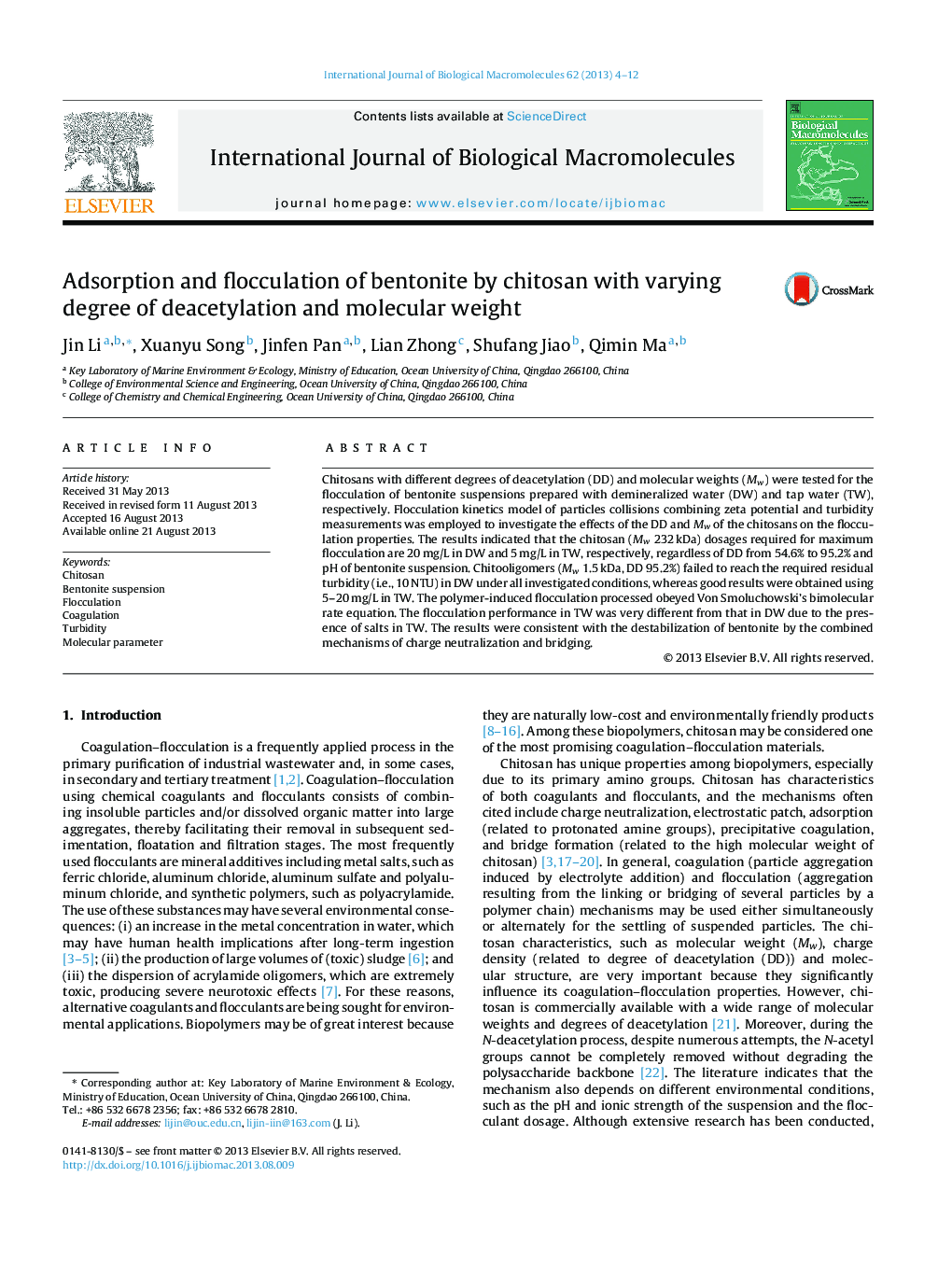| Article ID | Journal | Published Year | Pages | File Type |
|---|---|---|---|---|
| 1986873 | International Journal of Biological Macromolecules | 2013 | 9 Pages |
Chitosans with different degrees of deacetylation (DD) and molecular weights (Mw) were tested for the flocculation of bentonite suspensions prepared with demineralized water (DW) and tap water (TW), respectively. Flocculation kinetics model of particles collisions combining zeta potential and turbidity measurements was employed to investigate the effects of the DD and Mw of the chitosans on the flocculation properties. The results indicated that the chitosan (Mw 232 kDa) dosages required for maximum flocculation are 20 mg/L in DW and 5 mg/L in TW, respectively, regardless of DD from 54.6% to 95.2% and pH of bentonite suspension. Chitooligomers (Mw 1.5 kDa, DD 95.2%) failed to reach the required residual turbidity (i.e., 10 NTU) in DW under all investigated conditions, whereas good results were obtained using 5–20 mg/L in TW. The polymer-induced flocculation processed obeyed Von Smoluchowski's bimolecular rate equation. The flocculation performance in TW was very different from that in DW due to the presence of salts in TW. The results were consistent with the destabilization of bentonite by the combined mechanisms of charge neutralization and bridging.
